Submitted by WA Contents
James Corner creates a geometrical Island "Icebergs" in Washington DC Museum
United States Architecture News - Jul 07, 2016 - 14:26 11236 views

New York-based design firm James Corner Field Operations has created an ephemeral geometrical island for the National Building Museum in Washington DC, which will be on view between July 2–September 5, 2016, part of the Museum’s imaginative Summer Block Party series.
Titled Icebergs, the installation focuses on current themes in landscape representation, physical experience, geometry and construction. As landscape representation, Icebergs invokes the surreal underwater-world of glacial ice fields. Such a world is both beautiful and ominous given our current epoch of climate change, ice-melt and rising seas.
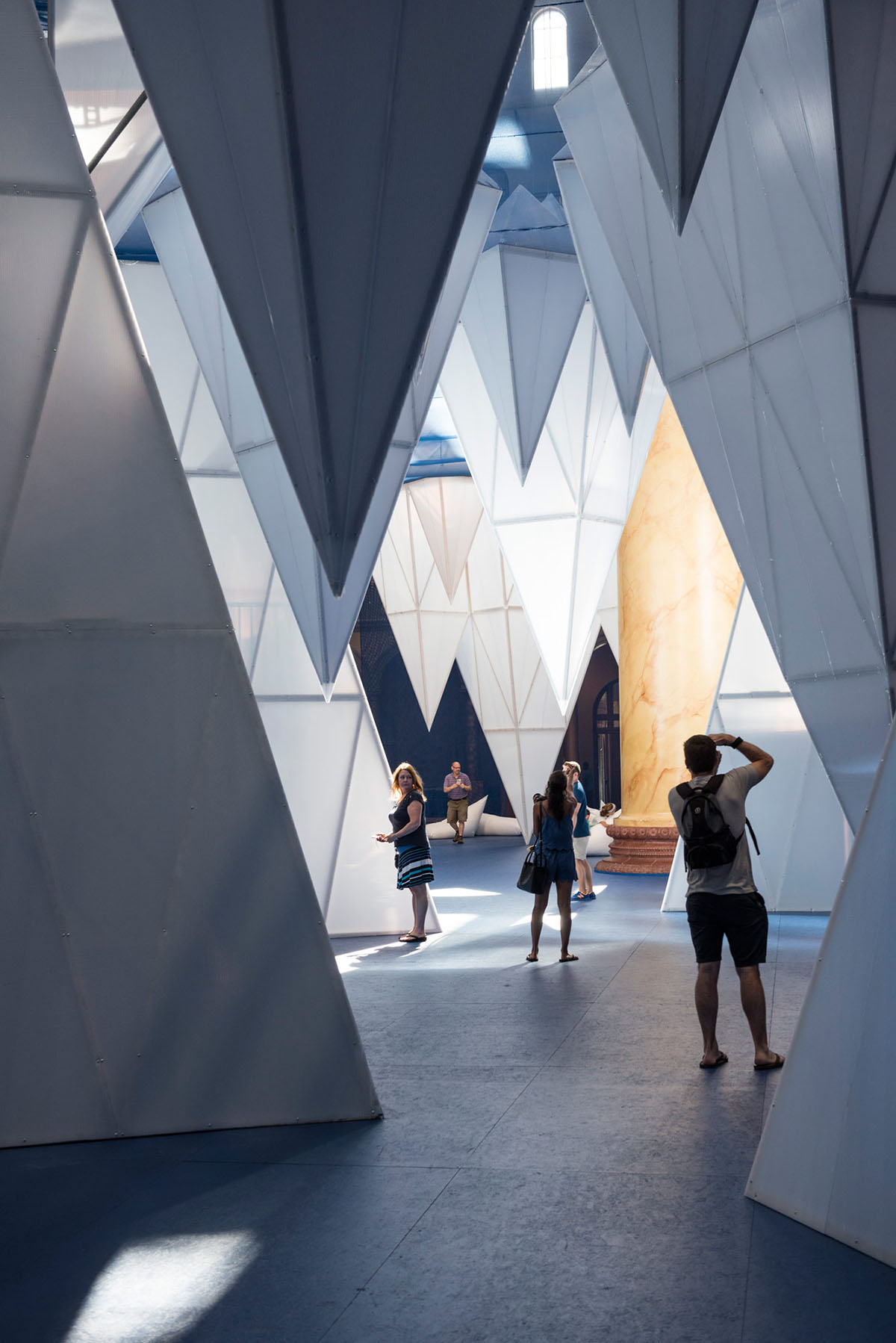
As physical experience, the installation creates an ambient field of texture, movement and interaction, as in an unfolding landscape of multiples, distinct from a static, single object. As geometry,it speaks to the mathematics of triangles and parallelograms in folded combinations.
As construction, it describes a method of assembly made from multiple pre-fabricated units. In the context of the National Building Museum, Icebergs about building, assembly, materials,spatial experience, design and imagination.

In the context of public space and visitation, the installation provides an interactive and playful space of respite and reflection, with cooler temperatures, chunky bean-bags and shaved-ice refreshments, set in stark contrast to the hot, humid world of Washington, DC summer outside.
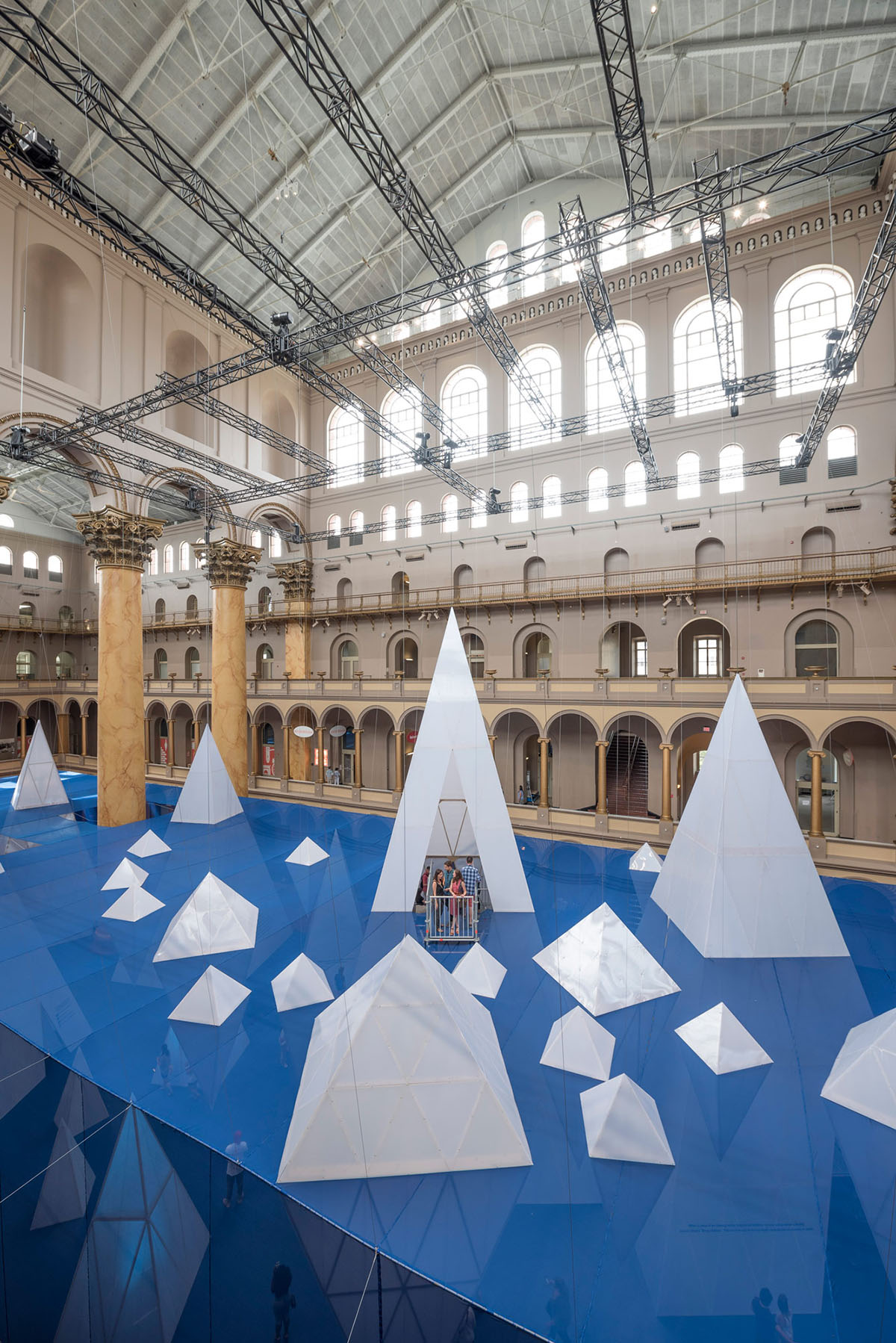
Icerbergs consists of many pentahedron and octahedron forms, made up of scaffolding and polycarbonate paneling-a material commonly used in building greenhouses. A “water line” suspended 20 feet high will bisect the vertical space, allowing panoramic views from high above the ocean surface and down below among the towering bergs.
The tallest “bergy bit,” at 56 feet, will reach above the waterline to the third story balcony of the Museum. ICEBERGS will occupy a total area of 12,540 square feet.
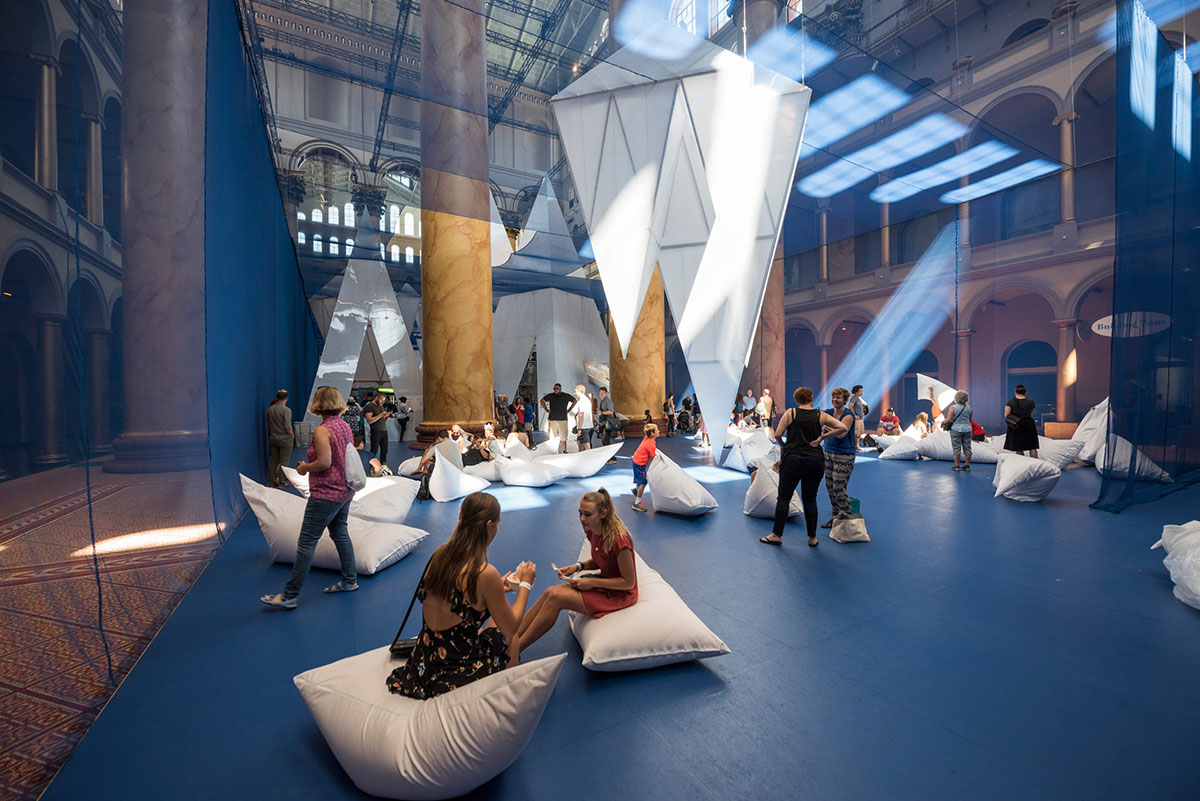
Visitors will be able to ascend a viewing area inside the tallest berg, traverse an undersea bridge, relax among caverns and grottoes on the ocean floor, sample Japanese kakigori shaved-ice snacks provided by Daikaya restaurant, and participate in unique educational programming integrating landscape architecture, design, and the environment.
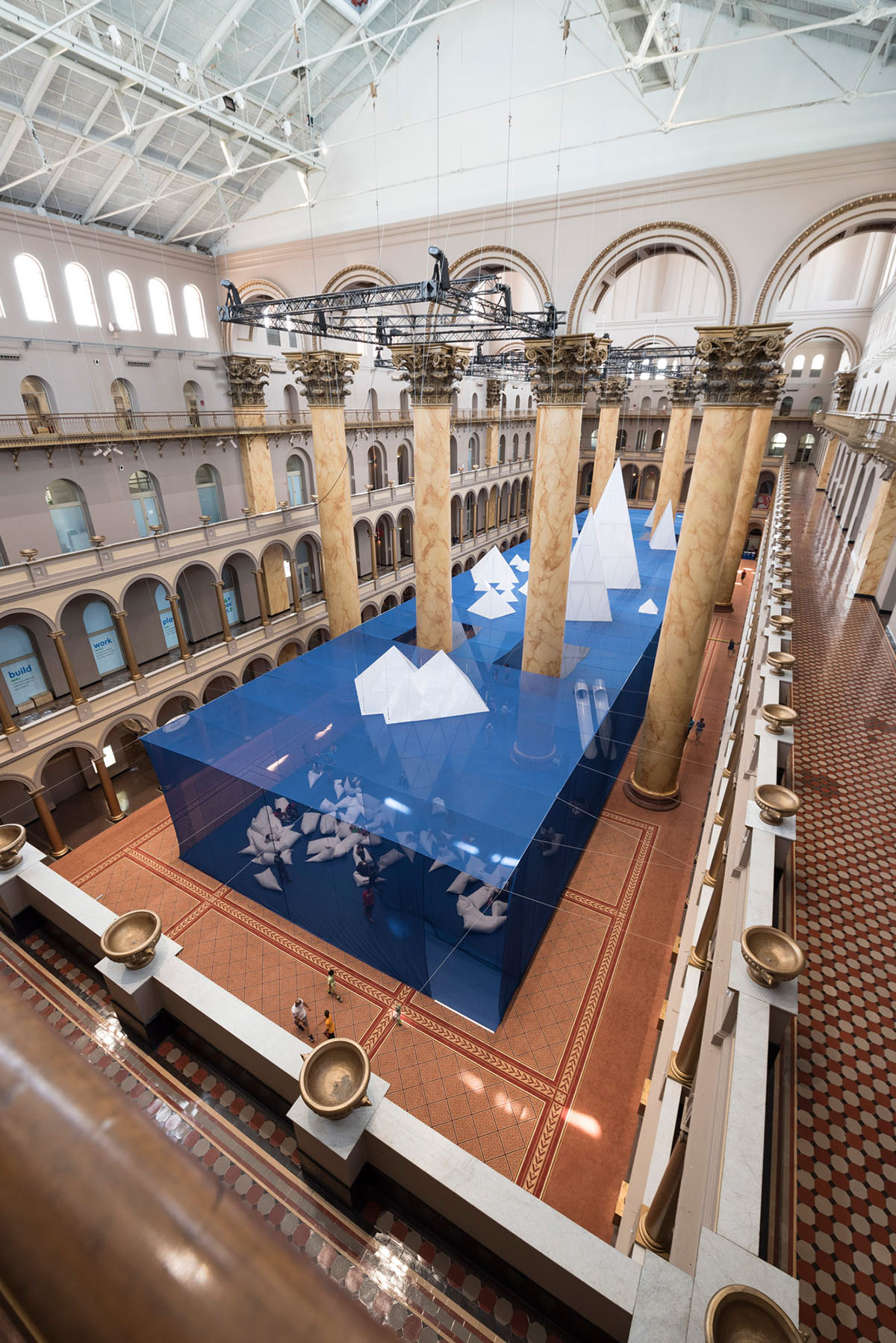
''Icebergs invokes the surreal underwater-world of glacial ice fields,” said James Corner, founder and director of James Corner Field Operations. ''Such a world is both beautiful and ominous given our current epoch of climate change, ice-melt, and rising seas.
The installation creates an ambient field of texture, movement, and interaction, as in an unfolding landscape of multiples, distinct from a static, single object.''

''Icebergs symbolizes an extreme counterpoint to the sweltering heat of the Washington, D.C. summer,'' said Chase W. Rynd, Hon. ASLA, executive director of the National Building Museum. ''We hope that James Corner Field Operations’ striking design will provoke both serious public conversation about the complex relationship between design and landscape, while also eliciting a sense of wonder and play among visitors of all ages.''

James Corner Field Operations is an urban design, landscape architecture, and public realm practice based in New York City and known for projects such as New York’s High Line and Santa Monica’s Tongva Park.
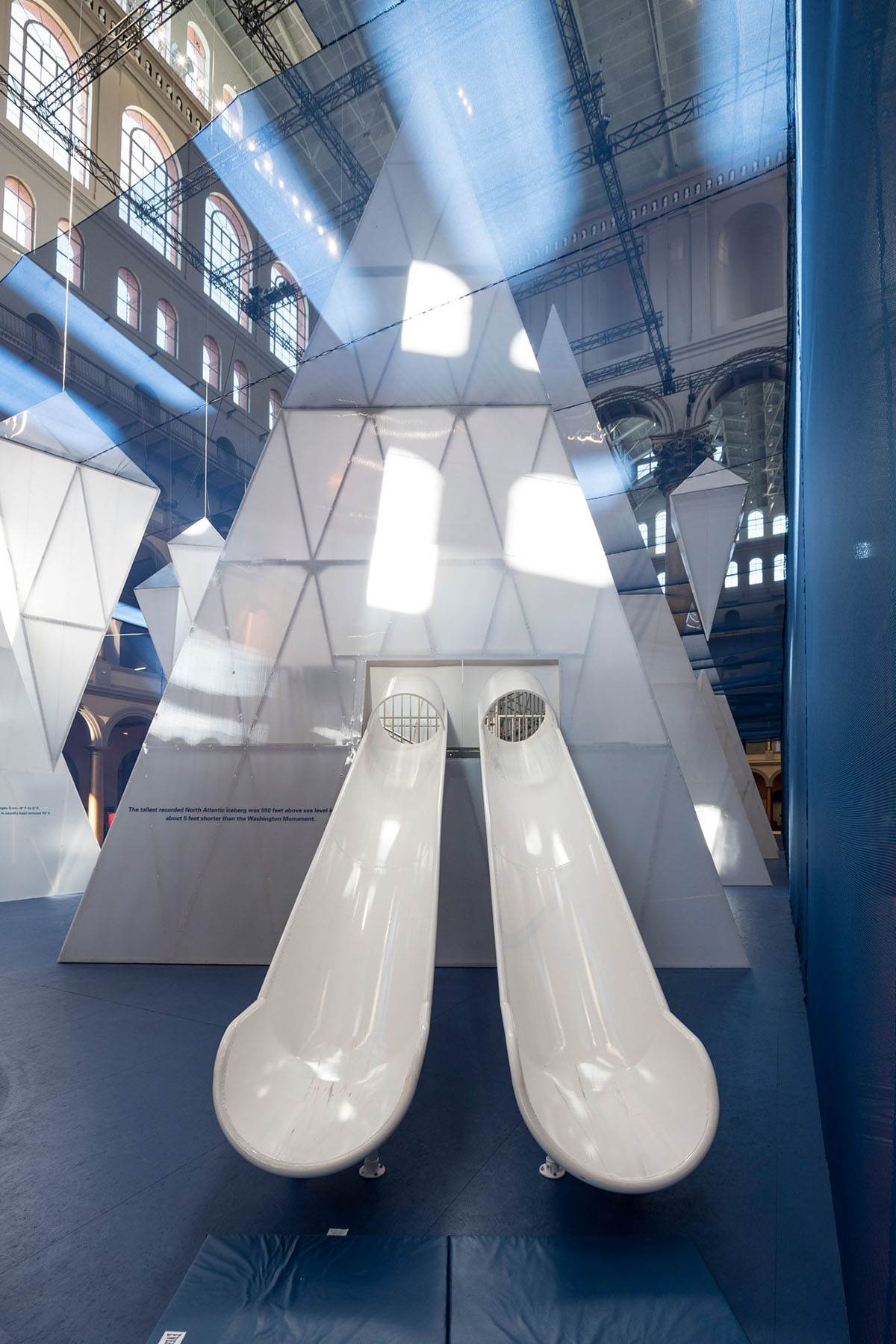
The firm was commissioned by the National Building Museum to create the temporary summer exhibit following last year’s popular BEACH installation, a playful structure that welcomed over 180,000 visitors during its two month run.
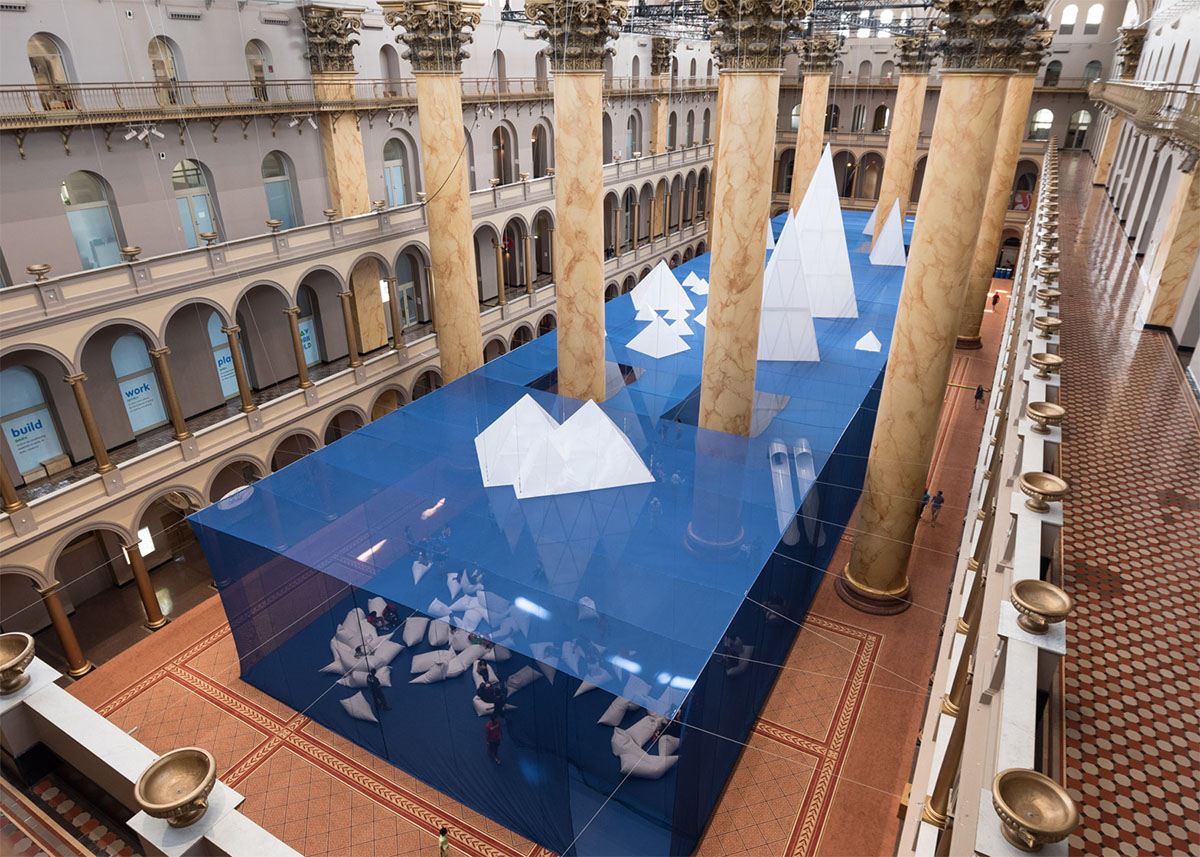
Explore a fantastical glacial sea designed by landscape architects.

Icebergs is built from re-usable construction materials, such as scaffolding and polycarbonate paneling, a material commonly used in building greenhouses.

The 20' high "water line" allows panoramic views from high above the ocean surface and down below among the towering bergs. The tallest “bergy bit,” at 56', reaches to the third story balcony of the Museum. Icebergs occupies a total area of 12,540 square feet.

The installation represents a beautiful, underwater world of glacial ice fields spanning the Museum’s enormous Great Hall, the immersive installation will emphasize current themes of landscape representation, geometry, and construction.
Icebergs will be open to the public July 2–September 5, 2016, part of the Museum’s imaginative Summer Block Party series.
All images © Timothy Schenck
> via James Corner Field Operations / National Building Museum
